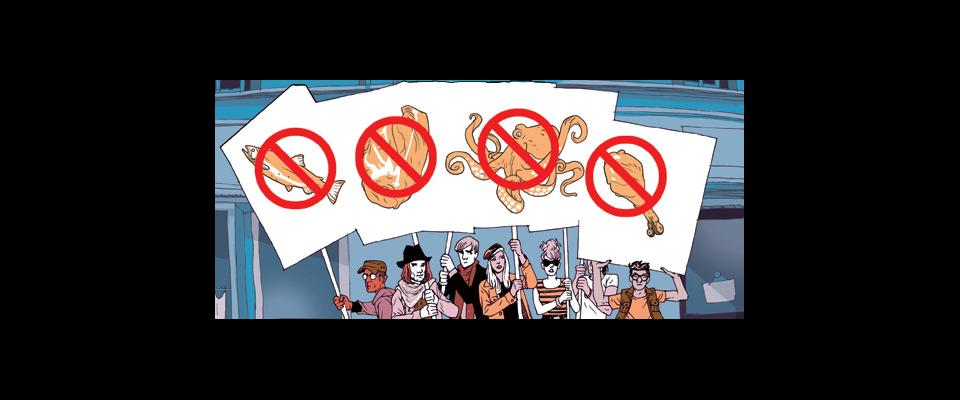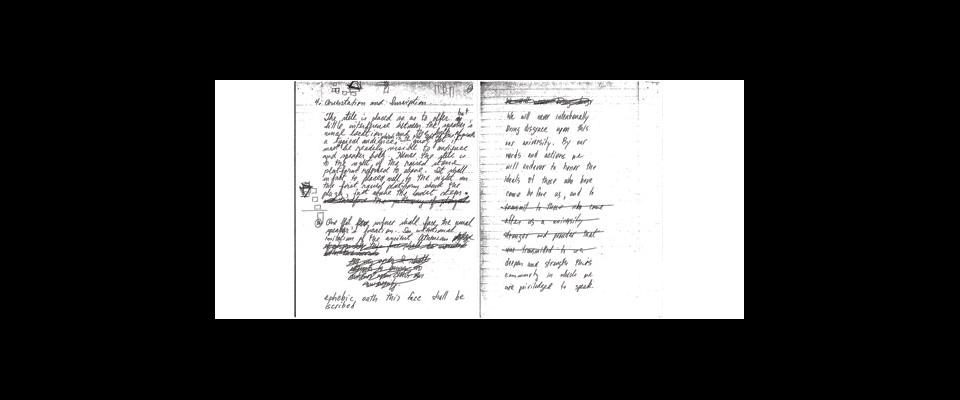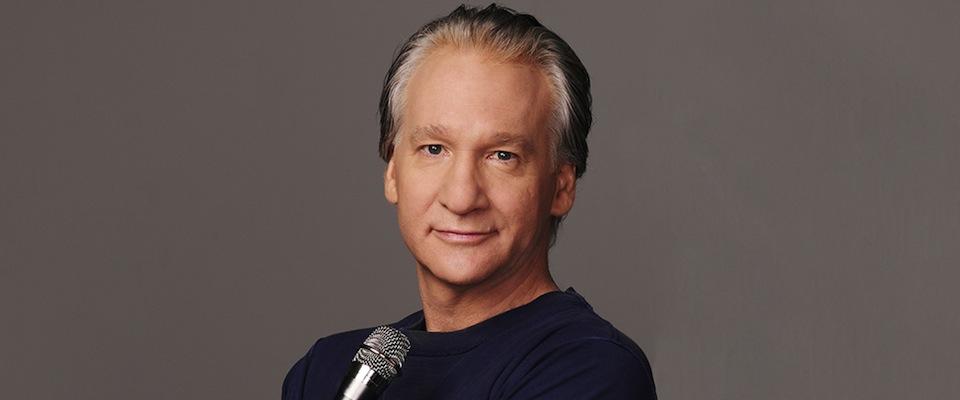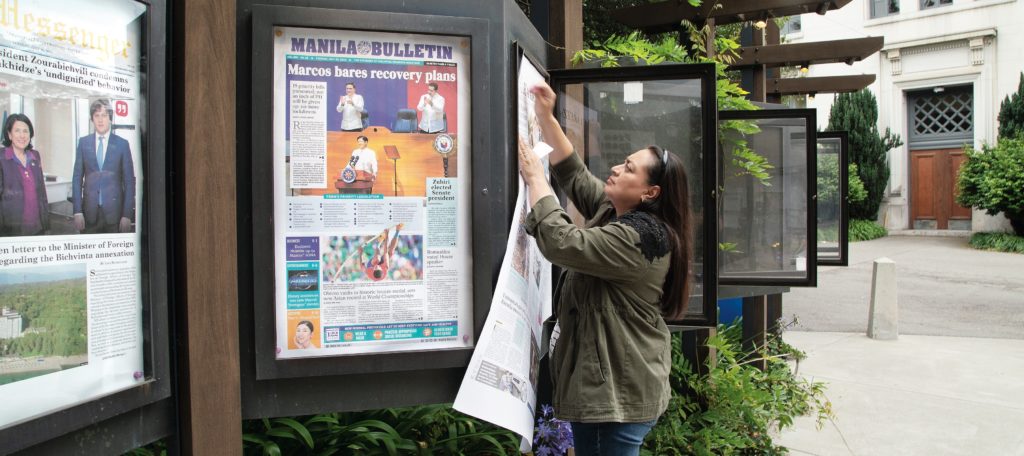In the Bay Area, the author finds self-righteousness by the cup.
On Cal’s campus this spring, there was a large outdoor display of black and white photos of various Berkeley students. Some included little statements printed on them, one of which was, “Berkeley taught me to listen better and scream louder.” Another, added by a vandal with a Sharpie, said, “I learned to be a ruling-class pig.” Viva la tradición. You can imagine those statements coming from any Cal student of the last 40 or so years. It is as comforting and nostalgic as watching an Amish community till its land with horses. Appropriately this display is located on a straight line from Sproul Plaza, where the Free Speech Movement has become the Free Speech Monument. And who can be surprised by such a monument? Each generation commemorates the battles of its youth. Elsewhere in California you can drive on the Korean War Veterans Memorial Highway or stroll in Pershing Square. At Berkeley, you can hold your protest on the Mario Savio Steps, provided you follow the University guidelines for on-campus activism and make a reservation through the Office of Student Life.
That may seem like missing the point of protest, but not really, not in Berkeley, where revolution has been institutionalized. You can see this all over the Bay Area these days as people worry not about disruptions to the status quo but about insufficient paradigm-changing ideological purity. It’s in the politics, it’s in the culture, it’s even in the food. At every turn, you risk falling into error and imperfection.
Is that chicken you’re eating just cage free or is it free range? And what are you doing eating chicken? Become a vegetarian. No, a vegan. But then you’ll have to decide: Do you eat quinoa to support a matriarchal fair-trade farm in Peru or do you fret about your carbon footprint and get a box of seasonal veggies from a local co-op? And even then, is that enough? Maybe you should become the envy of all your friends by eating only organic local greens you harvested from the alley behind your apartment. The plants the bums water.
Purity is distinct from mere snobbishness or, if you prefer, connoisseurship, which is just about taste and money. Purity is a kind of moral snobbishness. Take coffee, where you can find both kinds of snobbishness. For one kind, go on down to the local coffee roastery. Here you can learn all about roast styles and bean freshness and you can get yourself a $12 pot of siphon coffee brewed by hand with bamboo paddles atop a $20,000 machine imported from Japan. Dandy—besides an excellent cup of coffee, you have purchased the right to congratulate yourself on your refined sensibilities and the right to look down on the guy across the street that got a cup of hazelnut-flavored swill from the gas station.
But oh, if only you had made sure to purchase a shade-grown organic fair-trade blend of coffee—beans that have not known the touch of dread chemicals, beans that are friends of songbirds and are bought in a manner that is vaguely more equitable to coffee-growing peasants. Well then you would have the other kind of snobbery, having bought not just a better cup of coffee but a better you. And that guy drinking convenience store coffee? Now he is not only a rube but he is a sinner who thinks not of the campesinos.
Yes, sin. Without sin, righteousness has little appeal. How do you know that you are pure if everyone else is equally pure? And be assured that any issue can be made a subject of purity; can become its own religion, complete with asceticism. First you swear off meat (and anyone who tells you textured vegetable protein is a satisfying substitute for bacon is lying), then you wean yourself off even the soft runny cheeses and ascend to veganhood, and then maybe you finally convince yourself that humanity first sinned when it began to cook its food and you go raw. Pretty soon you are sitting pale-but-smug in the Gourmet Ghetto, telling the waiter “I am honoring,” by which you mean you’re willing to pay $12 for a plate of “live nachos” consisting of uncooked chips, greens, salsa and a lot of soggy nut pulp.
It is a kind of puritanism.
Consider the plight of Lierre Keith, a 45-year-old Arcata resident and subject of one of the English language’s finest headlines: “Anarchist-vegan world roiled as author-radical hit with pies.” In March, Keith, an ex-vegan, was speaking at an anarchist book fair in Golden Gate Park when three people in black hoodies and masks ran on stage and, shouting “Go vegan,” pasted her in the face with cayenne pepper-laced pies. Keith says her eyes hurt for days and blames the attack for an ear infection. The North American Animal Liberation Press Office (actual name) issued an approving press release, which called Keith an “animal holocaust denier” and compared her speech with someone “speaking to a crowd of men telling them how important it was to rape women.” The release declared that no “rational group of anarchists” could have sat by and listened politely.
So what was the awful, rape-like topic of her speech? Keith wrote a book called The Vegetarian Myth, and now eats meat and dairy to heal herself of ill-health she blames on 20 years of veganism, a movement she now sees as more of a cult than a sensible diet. What got Keith pepper-pied was her apostasy.
“There’s a similar personality to all fundamentalists. They have to reject huge chunks of the world to have that kind of purity,” Keith says these days. “They have all the answers so they’re really rigid and angry and unpleasant.” Her fellow revolutionaries, she says, have been convinced that personal morality and buying the right products is a substitute for political change.
Possibly no one has done as much to move food in the Bay Area from an issue of taste to a way to judge your fellow man as Michael Pollan, Berkeley professor and author of such anxiety-inducing best-selling books as The Omnivore’s Dilemma and In Defense of Food. I don’t want to pick on the man too much because he’s very smart, a lot more sensible than his audience, and willing to bend his principles for the occasional box of Cracker Jack. But he has helped popularize the idea that eating is a political act.
Eating is not a political act, at least not for most people, and even for those wealthy enough to put their principles upon their forks it is an extremely minor political act. Mostly it’s just eating.
Say you quite sensibly believe that corn monocropping is bad for the environment and individual health. You decide to completely abstain from corn products—after all, you are certainly too good a person to ever drink a cola, and my goodness no, that wasn’t your Prius we saw in the drive-through, and that orange smudge on your upholstery is certainly not from scarfing an entire bag of Cheetos. Nope, no corn for you.
Let’s say you persuade the rest of California, some 37-odd million people, to also forswear the Midwestern demon cereal. Do you know what will happen then? Agribusiness will still grow giant plots of corn because the federal government pays them to do so. If Archer Daniel Midlands and others can’t sell their corn as food, they’ll process it into carbon-inefficient ethanol and the federal government will also pay them to do this and possibly also buy off any excess corn to send abroad as foreign aid that will beggar Africa’s farmers.
And do you know why all of this will happen, despite your purity and your political eating? Because Iowa has an early presidential primary and places like Ohio and Indiana are battleground states in presidential elections. Plus, there’s the structure of the Senate, which gives disproportionate power to rural states. You are not going to eliminate agricultural subsidies with your grocery shopping. You are going to have to use much more traditional political acts, like voting and changing people’s minds and possibly amending the constitution.
A typical Bay Area resident carries around enough guilt to power a small psychiatry department and this distress often peaks when out shopping. No one is more familiar with this sensation than Dara O’Rourke, a Cal professor of environmental and labor policy. One day, O’Rourke wondered what, exactly, was in the sunscreen he was slathering on his young daughter. It was a thought that eventually led him to create the Good Guide, an online database of some 70,000 products rated by their effect on your health, the environment and society.
Now, O’Rourke is a rational guy about risks. He knows that what people fear is way out of proportion to what dangers they face, like being more concerned with terrorism than cardiovascular disease. He is interested in “the best available science.” He believes his guide is a rational way for people to manage their worries while they shop.
And, you know, it is, if you feel rational wandering through the aisles of Whole Foods and scanning every item with your iPhone (there is, of course, an app) and wondering whether you’re uncomfortable with your shampoo’s human rights record. That problem of confusing the personal with the political is even worse when you get to such forms of purity as carbon offsets, which combine irritating self-righteousness with the idea that you can achieve virtue by putting a TerraPass bumper sticker on the back of your $40,000 SUV schwag wagon that might as well run on whale oil. This is one of the realities about Bay Area puritianism—a lot of it is simply a luxury product available to the prosperous.
Richard Walker, a geography professor at Cal, is the definitive expert on the history of environmentalism in the Bay Area. He explains this Bay Area habit of environmentalism-as-status: “You have some very well-heeled people who try to buy their way into living right instead of being part of a broader political change for political good,” Walker says. “Still,” he adds, “they do it out of a sense of larger social responsibility rather than just back-patting.”
Not that the Bay Area left neglects back-patting.
This is a metropolitan statistical area of 4.3 million people that supports three FM public radio stations. There’s KQED, which is the sort of standard-issue public radio station that listening to in most cities east of the Bay Area would brand you as a wine-sipping pinko. Not in the Bay Area. Here, KQED is denounced as corporate, a word that sinisterly implies that someone, somewhere might be paying a mortgage. Better to listen to KALW, which broadcasts Canadian news and a bunch of call-in shows where people are very concerned about issues of serious concern, often yoga. Better still, prove your purity and listen to KPFA, voice of planet Berkeley. Or better yet, just claim to listen to KPFA, because even when you agree with the callers—whether it’s opening borders or denouncing Nancy Pelosi as an enabler of war crimes—it comes out as aggrieved nasal hectoring about the need for people of consciousness (by which they mostly mean themselves) to have sensitivity towards the community-based voices of the transgendered endangered species community—a community dental drill on your back left molar that starts you daydreaming about golf and martinis and nuclear aircraft carriers.
(Although, in fairness, I once turned on KPFA in the middle of a sunny weekday afternoon and floated into 30 minutes of commercial-free P-Funk. But that day may have been a complete fluke.)
If only we could somehow channel this demand for purity into politics, than surely we’d have something useful. Or, we’d have Code Pink, which is what the rest of the country thinks of as the Bay Area’s politics (never mind that the Bay Area’s actual politics are diverse enough that bile-flecked conservative-radio hate clown and Cal grad Michael Savage, Ph.D. ’78, makes his home in San Francisco). And when the rest of the country thinks of Code Pink, it thinks of women disrupting congressional hearings, hot-pink protests signs, and the public abuse of papier-mâché George W. Bushes. (All true! But like so many of the protesters on Cal’s campus, Code Pinkers tend to come from Berkeley, city of, rather than Berkeley, University of California at.)
Medea Benjamin is a cofounder of Code Pink, a former resident of the Bay Area, and currently an activist based in Washington, D.C. She remembers the reaction Code Pink used to get at the height of the anti–Iraq war protests: “They’d say, ‘Go back to Russia,’ or ‘Go back to Berkeley.'”
Because, obviously, the two are equivalent.
Does Benjamin think Code Pink ever crossed a line, like maybe the effort to get the Marine Corps recruiting office thrown out of downtown Berkeley, was that too far? Benjamin hedges. That’s a good question, she says. That was really the Berkeley chapter of Code Pink—she wasn’t involved. “Certainly there’s things I would have done differently, but it did bring the issue to the fore,” she says. And then, like a short guy talking himself into a bar fight, she starts to defend it. The problem wasn’t that this was a ridiculous confirmation of every Berkeley stereotype, the problem was that there weren’t similar protests all over America.
And then she sort of sighs and says, “Without a draft, it’s been hard to get a vibrant anti-war movement led by the young.”
But another way of looking at all of this activism and agitation is that it’s a useful corrective to the national debate. For years, the Rush Limbaugh end of the political spectrum has steadily moved the goal posts further and further until it’s a regular feature of political life in this country to hear arguments in favor of torture and apologies to an oil company responsible for the greatest environmental catastrophe in American history. Fairly or not, this dragged the center of debate further to the right until Barack Obama is a socialist intent on destroying American liberty with a healthcare system similar to one proposed by Richard Nixon. A group like Code Pink is moving the goal posts on the other end of the field and trying to drag the center back to the left.
“We hear from a lot of people who are more moderate than us, thanking us for making them look moderate,” Benjamin says. “We’ve gotten that from Hillary Clinton’s campaign.”
And you can think of the whole Bay Area, with all of its sometimes infuriating quirks, as sort of a national counterbalance to all those states that are regularly smitten by tornadoes. But the problem with living at an extreme is that, well, it can be a bit extreme. Or, as Cal linguistics professor and NPR contributor Geoffrey Nunberg says, “It’s as if the entire political spectrum had been picked up and moved five notches to the left.”
But, he adds, there is a spectrum, “like in France in 1790 or Russia in 1918.”
This idea of changing the conversation applies even to the various food movements. You don’t have to be a vegan or a locavore to see the benefits on your plate in terms of fresher, tastier seasonal ingredients and occasionally some wild game or little oily fishes. On the other hand, if you find yourself eating a plate of raw nachos, things have gone too far.
Trying to sort out how the Bay Area can be both so wonderful and so annoying, I joined my friend on a hike retracing some of the routes of Spanish exploration. He started early in the morning in Pacifica. Being less pure, I met him around noon in Daly City. We hiked down around Lake Merced and listened to skeet shooters blasting away with shotguns. We did not see the vegan taco truck. We hiked up the Great Highway past a house that looked as if it had been painted by Mondrian. We saw the ruins of the Sutro Baths and passed through fragrant trees along the Land’s End trail until we reached the Golden Gate Bridge at sunset. Then we hopped on a bus and grabbed a burger with bacon at the Noe Valley Barney’s. We ate onion rings and drank Anchor Steam. Someone may have complained about how their box from the community-supported agriculture co-op always had too much kale in it, but no one bothered us about our burgers, not even the vegetarians.
It was only after dinner that I looked at the menu and realized that Barney’s had switched to free-range local Niman Ranch beef.
Ah, well.





















